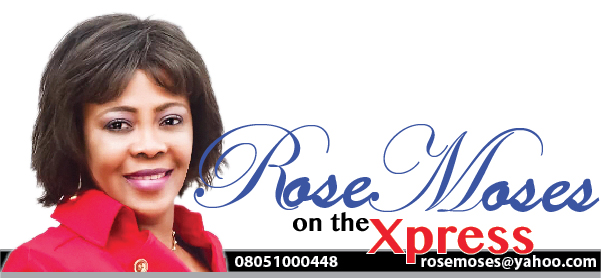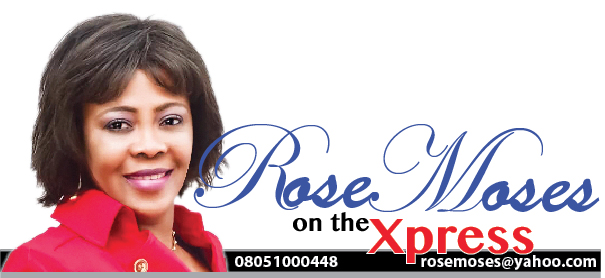By Rose Moses
It is not as though Nigerians were having it easy or going through some good times pre-COVID-19, but it has been more tales of woes by many, following the Coronavirus pandemic that, to a large extent, held the world to a standstill.
With the All Progressives Congress (APC) government’s policies that were systematically producing more poor Nigerians at alarming rates, life for most families, today, has become one hell of an experience.
Advanced countries have been busy seeking ways of cushioning effects of the pandemic on their people. It does appear that Nigeria presents another opportunity for the privileged few, especially those in the corridors of power, to loot the country dry. And the government of the day seems to take pride in enslaving future generations with unjustifiable loans that the unborn will have to pay back.

The government of President Muhammadu Buhari, without any doubt, in addition to mismanagement of the nation’s economy, has taken more loans than any government in Nigerian history. Yet, the living standard of an average Nigerian has hardly improved one bit, but instead, it has dropped significantly.
In most homes today, for instance, members are losing jobs as a result of the dislocation following the Coronavirus pandemic. Salaries of those still engaged are either being slashed or stopped during the period. So many businesses, if not closed, are running significant losses.
Nigeria’s economy had started nose-diving long before COVID-19 came on the scene. Professor of political economy, Pat Utomi, in a report, had argued that one “did not need to possess the gift of prophecy or genius to predict the Nigerian economy was bound for where it is now.”
“We got due notice but continued down the path like a group of drunk sailors largely because the political class lacks the personal discipline, organizational skill, and moral stock and perhaps the know-how and know-why to step away from a debilitating narcissism to contemplate reality.”
To Utomi, therefore, the desire for legal and sometimes illegal plunder seems to precede reason and sound judgment in public choice. So you hear of such things as school feeding, for instance, by the Federal Government, when schools closed due to COVID-19 pandemic with about N679 million claimed to be spent daily.
The opposition led by the Peoples Democratic Party (PDP) describes such a unique project as a massive scam and a scheme to siphon a targeted N13.5 billion public fund to finance their wasteful lifestyles. In that case, they may not be far from the truth.
The opposition party would further argue that “while it is clear that the APC-led administration’s school feeding agenda had always been a scam, to feed pupils even when schools are closed is colossal racketeering taken too far.”
Many Nigerians hold the same view as they just can’t understand how this works while the schools remain shut. A continuation of the school feeding scheme, while the children are at home, was seen on many fronts as unnecessary, untidy, unaccountable, and prone to corruption.
READ ALSO: https://www.thexpressng.com/2020/08/13/folarin-coker-baba-eto-of-lagos-dies-at-97/
All that, though, as is very commonly said in Nigeria, na grammar since that particular project for whatever it was, is done and dusted as we move on to other things.
If you think the continuation of the feeding, while the children are off school, is one colossal scam, just add the incident at the Niger Delta Development Commission (NDDC), where among other revelations, a whopping N1.5 billion allowance for COVID-19 corruptly went to the management and staff of the commission. You may or may not be scandalized, depending on your shock-absorbing capacity.
You can also look at what is happening at the Economic and Financial Crimes Commission (EFCC), a body set up to fight corruption in the country, following the arrest and subsequent trial of its boss, Ibrahim Magu, over allegations of misappropriations, including relooting of recovered loots.
Ironically and against this background, Nigeria, under the APC government, would go-ahead to acquire the title of the world’s poverty headquarters. With all the monies Nigeria loses, it is deplorable indeed that a report by The World Poverty Clock since 2018 showed that Nigeria overtook India as the country with the most extreme poor people in the world and has since been regressing without respite as government and its economic managers progressively fail to stem the slide.
What you see, instead, is progressive mismanagement of the country’s vast oil riches through incompetence and corruption.
The most clueless government ever in the history of the nation kept on denying the poverty status of the country and its people. The National Bureau of Statistics (NBS) would finally confirm what has been all too obvious to many since the Buhari administration came on board…Nigerians have been regressing deeper and deeper into unrelenting poverty due to poor economic management and sheer ineptitude.
In its poverty and inequality report from September 2018 to October 2019, released in May this year, the NBS said 40 percent of Nigerians live below its poverty line of N137,430 ($381.75) per year. These figures represent 82.9 million people out of a population of about 200 million.
Nigeria’s poor constitute 40.1 percent of the total population, NBS said. In other words, “on average, four out of 10 individuals in Nigeria have real per capita expenditures below N137,430 ($381.75) per year.”
The statistics office said 52 percent of people in rural areas live in extreme poverty. Compare this figure with 18 percent in urban parts and note that the highest poverty levels were in the northwest state of Sokoto, where 87.7 percent of people live under the poverty line as opposed to 4.5 percent in the commercial hub Lagos State, which had the lowest rate.
This dire situation is even more dreadful with coronavirus pandemic appearing to have no plans of exiting the scene anytime soon.
The sad part in all of these is that ordinary Nigerians bear the brunt of governments’ mismanagement of the nation’s commonwealth. Nigeria has an extreme poverty population as of June 2018, and this grim outlook has persisted without respite from 2019 to 2020.
The cost of living is always on the increase for people with no hope of good governance from any arm of government.
Now that schools are reopening across the nation, long-suffering parents have to pay all manner of fees besides what they paid before the pandemic-induced stay-at-home order that has lasted five months.
The Federal Government had, by July 27, 2020, announced that exit classes for Nigerian secondary schools are to resume on August 4th, 2020. The development is to enable the students to have two weeks to prepare for their West African Examination Council (WAEC) examinations scheduled to start on August 17, 2020.
Again, the development presents with the common Nigerian factor playing out. Some school authorities are viewed to be making wicked demands on parents still struggling to survive the hard realities of the pandemic.
Although the proposed N25, 000 fees for coronavirus test demanded of returning boarding students in private schools in Ogun State, for instance, was eventually dropped by the state government, it took protests by parents of these students for that to happen.
And despite the fact that school fees for sessions that were not maximally utilized since online studies didn’t really work well for some students, some returning students still have to pay monies that make no sense to the parents.
A Lagos school, for instance, is demanding N90, 000 each from returning JSS 3 students and about N85, 000 from SS 3 students. The school claims the money will be used for all of the COVID-19 preventive measures, even when these students already paid school fees.
Add this external pressure on parents to the fact that a significant fuel price increase looms in Nigeria, and you may get a picture of how hard things will get for an average home in the country.
According to estimates, the approved price of petrol in Nigeria for August will increase by up to 18 percent as consumers, as on August 5, were still waiting for the release of the new retail price for the commodity by the Petroleum Products Pricing Regulatory Agency (PPPRA). The July approved price ranged from N140.80 to N143.80 per litre.
Since the recent introduction of the partial deregulation of the downstream sector, marketers and consumers still faced new petroleum product prices on the first day of the new month.
Any increase in prices of petroleum products usually has ugly ripple effects on practically every segment. So, how on earth are ordinary folks expected to bear all this without breaking?
Most painful is that those saddled with the responsibility of fixing the nation, only look out for their interests and do not look back when looting the commonwealth. What a shame!


